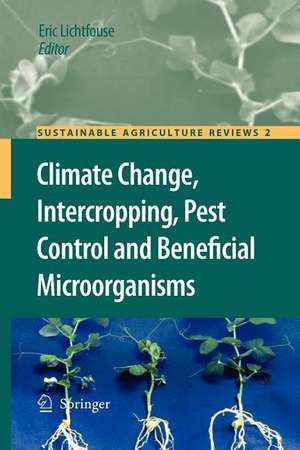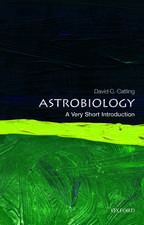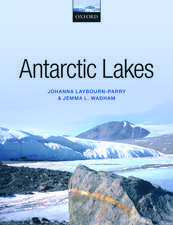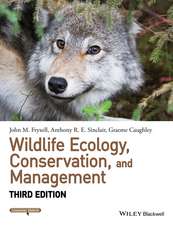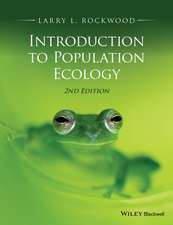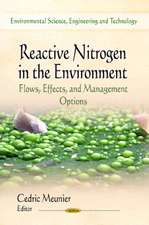Climate Change, Intercropping, Pest Control and Beneficial Microorganisms: Sustainable Agriculture Reviews, cartea 2
Editat de Eric Lichtfouseen Limba Engleză Paperback – 14 mar 2012
| Toate formatele și edițiile | Preț | Express |
|---|---|---|
| Paperback (1) | 1826.54 lei 6-8 săpt. | |
| SPRINGER NETHERLANDS – 14 mar 2012 | 1826.54 lei 6-8 săpt. | |
| Hardback (1) | 1832.70 lei 6-8 săpt. | |
| SPRINGER NETHERLANDS – 13 oct 2009 | 1832.70 lei 6-8 săpt. |
Din seria Sustainable Agriculture Reviews
- 24%
 Preț: 783.49 lei
Preț: 783.49 lei - 15%
 Preț: 652.49 lei
Preț: 652.49 lei - 15%
 Preț: 641.71 lei
Preț: 641.71 lei - 18%
 Preț: 953.65 lei
Preț: 953.65 lei - 15%
 Preț: 648.24 lei
Preț: 648.24 lei - 5%
 Preț: 1106.69 lei
Preț: 1106.69 lei - 5%
 Preț: 1110.32 lei
Preț: 1110.32 lei - 18%
 Preț: 955.25 lei
Preț: 955.25 lei - 18%
 Preț: 1233.83 lei
Preț: 1233.83 lei - 18%
 Preț: 1123.35 lei
Preț: 1123.35 lei - 18%
 Preț: 1115.46 lei
Preț: 1115.46 lei - 18%
 Preț: 1117.03 lei
Preț: 1117.03 lei - 18%
 Preț: 1387.73 lei
Preț: 1387.73 lei - 18%
 Preț: 1222.80 lei
Preț: 1222.80 lei - 18%
 Preț: 1113.09 lei
Preț: 1113.09 lei - 18%
 Preț: 903.93 lei
Preț: 903.93 lei - 18%
 Preț: 1114.65 lei
Preț: 1114.65 lei - 18%
 Preț: 1223.11 lei
Preț: 1223.11 lei - 24%
 Preț: 1056.88 lei
Preț: 1056.88 lei - 18%
 Preț: 1234.00 lei
Preț: 1234.00 lei - 20%
 Preț: 565.09 lei
Preț: 565.09 lei - 18%
 Preț: 952.89 lei
Preț: 952.89 lei - 18%
 Preț: 955.08 lei
Preț: 955.08 lei - 18%
 Preț: 950.96 lei
Preț: 950.96 lei - 15%
 Preț: 649.71 lei
Preț: 649.71 lei - 18%
 Preț: 954.62 lei
Preț: 954.62 lei
Preț: 1826.54 lei
Preț vechi: 2227.49 lei
-18% Nou
Puncte Express: 2740
Preț estimativ în valută:
349.50€ • 366.22$ • 288.93£
349.50€ • 366.22$ • 288.93£
Carte tipărită la comandă
Livrare economică 12-26 aprilie
Preluare comenzi: 021 569.72.76
Specificații
ISBN-13: 9789400730557
ISBN-10: 9400730551
Pagini: 524
Ilustrații: X, 514 p.
Dimensiuni: 155 x 235 x 28 mm
Greutate: 0.73 kg
Ediția:2010
Editura: SPRINGER NETHERLANDS
Colecția Springer
Seria Sustainable Agriculture Reviews
Locul publicării:Dordrecht, Netherlands
ISBN-10: 9400730551
Pagini: 524
Ilustrații: X, 514 p.
Dimensiuni: 155 x 235 x 28 mm
Greutate: 0.73 kg
Ediția:2010
Editura: SPRINGER NETHERLANDS
Colecția Springer
Seria Sustainable Agriculture Reviews
Locul publicării:Dordrecht, Netherlands
Public țintă
ResearchCuprins
Climate Change, Society Issues and Sustainable Agriculture.- Tragedy of the Global Commons: Soil, Water and Air.- The Rediscovery of Intercropping in China: A Traditional Cropping System for Future Chinese Agriculture – A Review.- Effect of Genetically Modified Bacteria on Ecosystems and Their Potential Benefits for Bioremediation and Biocontrol of Plant Diseases – A Review.- Climate Change and Plant Water Balance: The Role of Aquaporins – A Review.- Responses of Cereal Plants to Environmental and Climate Changes – A Review.- Induction of Plant Tolerance to Semi-arid Environments by Beneficial Soil Microorganisms – A Review.- Essential Oil Crops for Sustainable Agriculture – A Review.- Sugarcane and Precision Agriculture: Quantifying Variability Is Only Half the Story – A Review.- Fungal Disease Management in Environmentally Friendly Apple Production – A Review.- Mitigation of Agricultural Nonpoint-Source Pesticide Pollution in Artificial Wetland Ecosystems – A Review.- Sustainable Management of Natural Resources for Food Security and Environmental Quality: Case Studies from India – A Review.- Decision Support Systems: Concepts, Progress and Issues – A Review.- Olive and Grapevine Biodiversity in Greece and Cyprus – A Review.- Ethyl Carbamate in Foods and Beverages – A Review.- Evaluation of Soil Fertility Using Infrared Spectroscopy – A Review.
Notă biografică
Dr. ERIC LICHTFOUSE, born April 2, 1960, completed his Ph.D. in organic geochemistry in 1989 at Strasbourg University. After post-doctoral fellowships at Indiana University, USA and the KFA research center in Jülich, Germany, he became engaged as a soil scientist at the French National Institute for Agricultural Research (INRA) in 1992. His study on soil organic matter and pollutants led in particular to the first determination of the dynamics of soil organic molecules in long-term maize field experiments using 13C labeling at natural abundance. In 2000 he founded the European Association of Environmental Chemistry (ACE) and in 2003 the Journal Environmental Chemistry Letters. He has co-edited the book Environmental Chemistry (Springer, 2005). He is currently working in Dijon for the INRA Department of Environment and Agronomy as Editor-in-Chief of the journal Agronomy for Sustainable Development. He is growing fruit trees and vegetables in his home backyard and travelling from home to work by bicycle. Eric Lichtfouse is also finisher of 10 ironman competitions, including the World Ironman Championships in Hawaii in 2006.
Textul de pe ultima copertă
Sustainable agriculture is a rapidly growing field aiming at producing food and energy in a sustainable way for humans and their children. Sustainable agriculture is a discipline that addresses current issues such as climate change, increasing food and fuel prices, poor-nation starvation, rich-nation obesity, water pollution, soil erosion, fertility loss, pest control, and biodiversity depletion. Novel, environmentally-friendly solutions are proposed based on integrated knowledge from sciences as diverse as agronomy, soil science, molecular biology, chemistry, toxicology, ecology, economy, and social sciences. Indeed, sustainable agriculture decipher mechanisms of processes that occur from the molecular level to the farming system to the global level at time scales ranging from seconds to centuries. For that, scientists use the system approach that involves studying components and interactions of a whole system to address scientific, economic and social issues. In that respect, sustainable agriculture is not a classical, narrow science. Instead of solving problems using the classical painkiller approach that treats only negative impacts, sustainable agriculture treats problem sources. Because most actual society issues are now intertwined, global, and fast-developing, sustainable agriculture will bring solutions to build a safer world. This book series gathers review articles that analyze current agricultural issues and knowledge, then propose alternative solutions. It will therefore help all scientists, decision-makers, professors, farmers and politicians who wish to build a safe agriculture, energy and food system for future generations.
Caracteristici
First book on sustainable agriculture Sustainable agriculture is the sole science to solve global society issues Addresses issues from the molecular to the global level, using integrated knowledge from agronomy, biology, geology, ecology, chemistry, environmental, social and economic sciences and political disciplines Sustainable agriculture provides healthy food Sustainable agriculture provides safe food and energy for all humans leaving a safe world to our children
